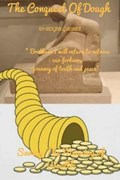My essay "Why are we here?" is a thought-provoking exploration prompted by David Malone's documentary series,of the same name. The essay delves into the four films in the series, namely "Meaning Seeking Beings," "The Reality of Ideas," "The Animal Within," and "The Moral Compass." It also delves into the complexities of existence, the pursuit of knowledge, and the interplay between science, philosophy, and ethics.
Sometimes one can not but reflect on the fundamental question of human existence and the quest for meaning. We must express a genuine curiosity about the purpose of life and the nature of our existence. It is unavoidable to also touch upon the limitations of human understanding and the vastness of the unknown, forcing one into acknowledging that universals escape our imagination and perception.
The interplay between science and philosophy poses questions of whether the scientific method or art is more effective in communicating the essence of the unknown or immeasurable. If one contemplates the coexistence of materialism and idealism, it can be helpful to reject the notion that they are mutually exclusive and advocate for a broader perspective that transcends traditional dichotomies.
Ethical considerations in both scientific and religious inquiries highlight the importance of ethical frameworks in shaping human behavior and decision-making, emphasizing the pursuit of virtue for the general well-being of society.
The role of tradition and authority in shaping knowledge systems draws on historical and philosophical perspectives to underscore the complex interplay between tradition, belief, and inquiry. philosophical thinkers, such as Michel Foucault, Neal Donald Walsh, and C.S. Pierce, enrich our arguments and provide a comprehensive examination of epistemological and ethical considerations.
The impact of urbanization on evolution and ecosystem function, linking scientific inquiry to broader societal implications underscores the need for humility and context in scientific education. Recent elite hubris should serve as a caution against propagandistic approaches in both science and religion.
A pause for profound reflection on the complexities of human existence, the pursuit of knowledge, and the ethical considerations can underpin both scientific and religious inquiries. I would encourage readers to embrace a holistic perspective that transcends traditional boundaries, fostering a deeper understanding of the interconnectedness between science, philosophy, ethics, and human experience.

